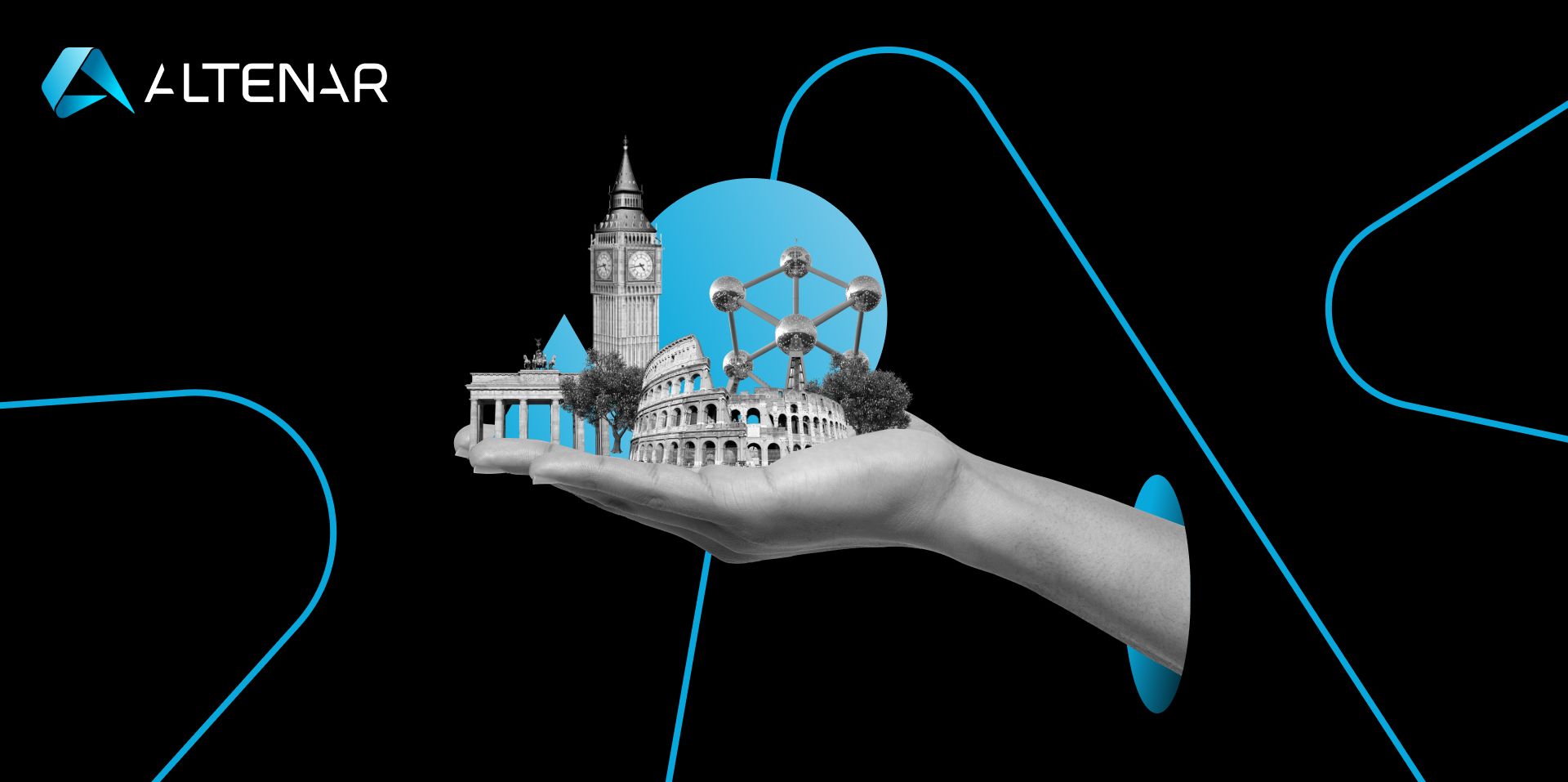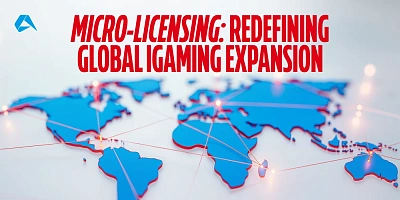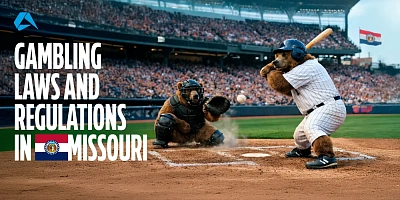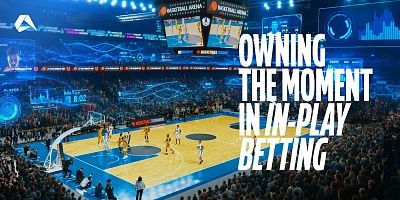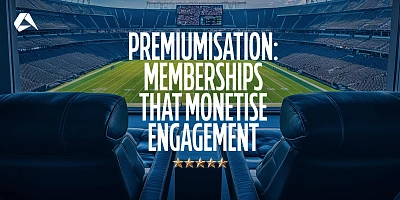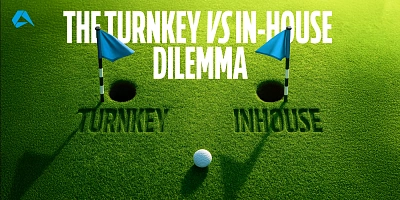As a sportsbook solution provider, Altenar offers a host of must-have features, technologies, and services with ample experience in ways to diversify your sportsbook and iGaming business in 2023 and beyond.
This could include entering newly regulated markets, offering new sports content, providing creative bonus tools, delivering in-game betting, and adding mobile usability to your current iGaming offering across a plethora of global markets.
This article will take you through some regulatory must-knows for new market entry, show you how offering a mobile application could boost your player acquisition and retention, as well as the ability to take a deeper dive into the world of sports betting with Altenar.
Entering New Markets | Expansion Is Key
As a sportsbook solution provider, Altenar has ample global expertise in diverse and highly-regulated markets, which not only drives technological innovation for the award-winning provider but offers its operating partners access to a host of beneficial market expertise and know-how before an operator has begun their sports betting venture in any given regulated iGaming landscape.
Below is a brief overview of some markets that Altenar has ample experience, however, if you’re interested in learning more about Altenar’s global operations click here.
So, without further ado, let’s take a look at some of the regulatory requirements and good-to-haves for entering a handful of betting landscapes.
Italy
The Italian Agenzia delle Dogane e dei Monopoli (ADM) is in charge of regulating gambling in Italy. All companies that wish to offer sports betting services in Italy must obtain a license fr om the ADM. The license is valid for nine years and can be renewed.
Sports betting companies in Italy must pay a tax on their gross gaming revenue. The tax rate is currently set at 24% for online sports betting and 20% for land-based sports betting.
There are strict rules around the advertising of sports betting in Italy. Companies are only allowed to advertise their services on television and radio between the hours of 10 pm and 7 am. All advertising must also carry a warning about the risks associated with gambling.
Sports betting companies in Italy must take measures to promote responsible gambling. This includes providing information about the risks associated with gambling and offering tools to help customers manage their gambling activity.
It is illegal for anyone under the age of 18 to place a bet on sports in Italy. Sports betting companies must take steps to ensure that minors are not able to access their services.
The following forms of online gambling are legal in Italy:
-
sports and horse racing betting
-
pool betting
-
virtual and live betting (includes fantasy sports betting)
-
slots, roulette, and other casino games (online casinos)
-
poker and card games
-
games of skill, including poker tournaments, non-banked poker games
-
bingo
-
betting exchange
Sports betting is legal and in its current form, it is regulated by the Sports Betting Decree number 111, in effect since 2007. Virtual sports betting (computer simulation but real teams and sports) and fantasy football (player-created teams, and/or made-up sports) are considered gambling in Italy, and operators engaged in these activities require a sports betting license. Online sports betting has been legal as well, since the 2011 online lottery.
United Kingdom
As an ISO27001-certified sportsbook solution provider, Altenar resonates and understands the need for regulation within the gaming sphere, and how this type of regulatory requirement can bolster the entertainment value associated with the sports betting and iGaming market.
So, what does an iGaming business need to be able to work, operate and thrive in the UK’s betting market?
Legislation introduced in April 2017, the Gambling (Operating Licence and Single-Machine Permit Fees) Regulations 2017 (SI No 303, 2017), created B2B-specific “host” subcategories:
-
casinos (game host);
-
bingo (game host);
-
general betting (host) (real events); and
-
general betting (host) (virtual events).
However, these licenses are subject to various requirements, including:
-
the company must hold a gambling software operating license; and
-
the company must not contract with players directly
The regulatory body, UKGC, allows the following games of chance:
-
betting (live, in-play, fixed-odds and pari-mutuel, betting exchanges, and intermediaries)
-
bingo
-
casino
-
fantasy sports
-
gaming machines
-
gambling software
-
Lotteries
-
Poker
Additionally, for sports betting specifically the UKGC ask for numerous licences, some of which include:
-
Non-remote general betting standard operating licence
-
Non-remote general betting limited operating licence
-
Remote general betting standard real events licence
-
Remote general betting standard virtual events licence
-
Remote betting host real events licence
-
Remote betting host virtual events licence
-
Remote general betting limited licence
Not only this but numerous efforts are made and required to prevent and report any instances of match-fixing: The SBIU is a unit within the Gambling Commission that traces this behaviour. As an IBIA member, Altenar is actively involved in trying to keep betting activities above board for all!
Ontario, Canada
Entering betting and iGaming landscapes can be difficult, and often, this period of ensuring your product and offering meets the standards of any given regulatory body can be a stressful time.
However, with sportsbook solution providers like Altenar, many operators can rest assured that all electronic and compliance necessities have been met. With a host of global territories, some being famous for their strong regulatory frameworks (UK, Sweden, Spain … ) Altenar is the perfect pairing for operators looking to enter highly-regulated markets, and you can find more on the provider’s success stories by clicking here.
So, what must a sportsbook software provider and any iGaming venture wishing to enter the Canadian betting market have in order to operate within the law?
The AGCO offer two types of certification for operators and providers, and they explain how you must qualify and represent yourself, here is a an extraction from the AGCO website:
-
Gaming-Related Supplier – Manufactures
A person that manufactures, provides, installs, tests, maintains or repairs gaming equipment or who provides consulting or similar services directly related to the playing of a lottery scheme or the operation of a gaming site. -
Gaming-Related Supplier - A person that provides, installs, tests, maintains or repairs gaming equipment or who provides consulting or similar services directly related to the playing of a lottery scheme or the operation of a gaming site.
The AGCO notes that each application will be considered on an individual basis and this process is a must if an operator or provider wishes to enter the Canadian market.
-
You are manufacturing (e.g., software or hardware) or providing a service.
-
Your goods or services are directly related to the playing of a game or the operation of a gaming site,
-
Platform providers.
-
Suppliers that manufacture, develop, provide and/or run games and game systems.
-
Customer electronic wallet providers.
-
Odds makers.
-
Sports integrity monitoring organisations.
-
Independent Test Labs.
To apply for an AGCO licence you must have the following documents:
-
Supplier Application
-
Personal Disclosure for individuals identified below
-
Entity Disclosure (if applicable)
-
Regulatory fee
-
Supporting documents (as applicable)
The ‘ISO27001 was created in 2005, by top information security experts to define an Information Security Management System (ISMS), ensuring protection of data and business continuity. It formally specifies a set of system controls and requirements that can be audited and certified. In particular, the standard requires that a thorough information security risk assessment is performed on all assets to identify the necessary controls that need to be implemented to mitigate such risks. The framework also ensures processes are in place for the continual management, monitoring, review and improvement of the ISMS’.
As a sportsbook provider who successfully attained certification standards and a host of testing, Altenar helped to secure its Ontario licence thanks to being a qualifying party for the ISO27001. You can discover more about the importance of ISO certification by watching this video.
The Netherlands
In the 21st century, the gambling market in the Netherlands has undergone a significant transformation. The government changed the legislation, making it more open for private companies to operate. The Dutch gambling market is now open for foreign operators and the number of online gambling providers has increased.
The Dutch government has also introduced measures to promote responsible gambling and prevent problem gambling.
In conclusion, The history of betting in the Netherlands is a story of gradual liberalisation and diversification, driven by changes in government policy and societal attitudes towards gambling. Today, gambling is a well-regulated and legal activity in the Netherlands, with a variety of options available to Dutch citizens.
Online gambling had previously been prohibited in the Netherlands, but the passage and subsequent enactment of the delayed Remote Gambling Act (KOA) meant the market was finally able to launch.
The KOA was eventually enacted on 1 April this year, allowing the market to open six months later on 1 October.
The Regulation further specifies the regulations set out in the Decree and will govern the following:
-
Remote gambling licensing and operations
-
The organisation of remote gambling: which includes the licensee’s integrity policy, access to remote gambling and management of gambling credits, consumer protection, the gambling system, and the inspection of the gambling system; and
-
Compliance supervision and enforcement: This includes recording and reporting requirements and a data safe (control database) for monitoring purposes.
The amended BGA ( Betting and Gambling Act ) is not introducing a licensing system for B2B service providers. Service providers such as software suppliers and affiliates are, in principle, free to provide out services to locally licensed remote gambling operators. That said, B2C operators will be subject to extensive requirements regarding outsourcing which means that we need to get certified for providing our sportsbook in the Netherlands.
Furthermore, license holders will remain responsible for advertising activities performed by affiliates.
Germany
After instituting its ‘Interstate Treaty’ the Gambling Authority of the Federal States of Germany has detailed the purposes and aims of its regulation as well as how best to enter and operate within the country’s iGaming space that will potentially propel, from 2021 onwards, a regulated, responsible and safe gaming landscape.
The regulatory approach in Germany aims to prevent gambling addiction, ensure the protection of minors and players, ensure fairness, channel players to licensed offerings to combat the black market and crimes related to gambling and ensure the integrity of sport.
Under the ITG 2021, it will be legal to offer bets on events during a sports event other than the outcome of the event or parts of the event. The term sports betting now includes any bet at fixed odds on the following:
-
future event during a sports event
-
the outcome of a sports event
-
the outcome of parts of a sports event
The term "sports event" has also been further defined: It is now described as a sportive contest between people according to defined rules. This definition extends the area of application significantly to also cover e-sport types.
Belgium
In 2019, the Belgian legislature substantially amended the country's most important piece of gambling legislation, the Federal Act of 7 May 1999 regarding games of chance, wagers, and protection of the players (the “Gaming Act”) (see 3.1 Key Legislation). It is now prohibited to organize bets on events “where the majority of the participants are minors” and the Gaming Commission has been given the power to prohibit bets if the fairness of the event cannot be guaranteed or wh ere certain betting mechanics are considered prone to fraud.
All companies that wish to offer sports betting services in Belgium must obtain a license fr om the BGC. The license is valid for a period of nine years and can be renewed.
Offering online games of chance and bets requires a license. There are three categories of online gaming licenses:
-
an A+ license for online casino games;
-
a B+ license for online arcade (dice) games; and
-
an F1+ license for online bets.
As a general rule, the Gaming Act stipulates that an online license holder (A+, B+ or F1+) can only operate games of chance “of the same nature” as the ones offered offline.
An F1+ license holder can offer online bets and an A+ license holder has the right to commercialize online casino games. The National Lottery holds the monopoly to offer online lotteries.
B2B operators should hold an E license. The following activities are subject to an E license requirement: sale, rental, supply, making available, import, export, manufacture, maintenance, reparation of, and equipment of games of chance. The Gaming Act does not distinguish between land-based games of chance and online games of chance. It follows that all undertakings providing one of these services to an A+, B+ or F1+ license holder should obtain an E license.
-
Taxes: Sports betting companies in Belgium must pay a tax on their gross gaming revenue. The tax rate is currently set at 11% for land-based sports betting and 21% for online sports betting.
-
Advertising: There are strict rules around the advertising of sports betting in Belgium. It is prohibited to advertise land-based and online games of chance and bets if it is known that those games of chance or gaming establishments are not authorised under the Gaming Act. A violation of this prohibition can give rise to criminal sanctions. All advertising must also carry a warning about the risks associated with gambling.
-
Responsible gambling: Sports betting companies in Belgium must take measures to promote responsible gambling. This includes providing information about the risks associated with gambling and offering tools to help customers manage their gambling activity. Persons below the age of 21 are prohibited from accessing a casino or a gaming arcade. Bets are prohibited for minors (ie, those under the age of 18). The same age restrictions apply for online games of chance and bets. The Gaming Act contains additional prohibitions on particular persons (eg, magistrates) accessing casinos and gaming arcades; Protection of minors: It is illegal for anyone under the age of 18 to place a bet on sports in Belgium. Sports betting companies must take steps to ensure that minors are not able to access their services.
Mobile Betting To Offer | Altenar & You
Betting on the go is a must in this day and age, as growing accessibility to smartphones and everything that comes along with them blossoms daily. With a mobile-first attitude sportsbook software provider, Altenar, has created its native mobile application which removes the low-latency of browser betting and improves a host of nifty features like time-to-market speed.
The locally labelled (MOA), Altenar’s in-house mobile app, is available for IOS and Android.
The necessity of moving from browser betting to a mobile application allows operators and players enhanced safety, a swifter betting experience, can be lighter to run on older devices and makes placing a bet easier for players.
Without the need for a device-to-device front-end alteration, the sportsbook runs smoothly for all of your player’s betting needs. Additionally, operators have access to official data providers, content and technologies.
With particular interest and design through Flutter, Altenar’s MOA is flying high and allows operators to achieve in new and budding areas.
Altenar’s mobile application is just one of many products the sportsbook software provider offers to operators, and it allows for deeper brand penetration, players can bet on the go, and is heavily used in betting landscapes wh ere in-person betting has moved online and virtual.
Altenar’s MOA is designed to solve two tasks: Firstly, to ensure the operation of the SB solution on a mobile device. Secondly, to integrate with the platforms of its operating partners. The MOA is native and has been approved and published in the i-store.
So, what have been the benefits of using Flutter?
-
The same business logic & user experience across all platforms
-
Increased time-to-market speed
-
Own rendering engine
-
Simple platform-specific logic implementation
-
Suitable for any target platform
-
Faster code development and product production
You can discover more about Altenar’s sportsbook and mobile application by contacting the team today and start your sports betting journey on the path to success!
